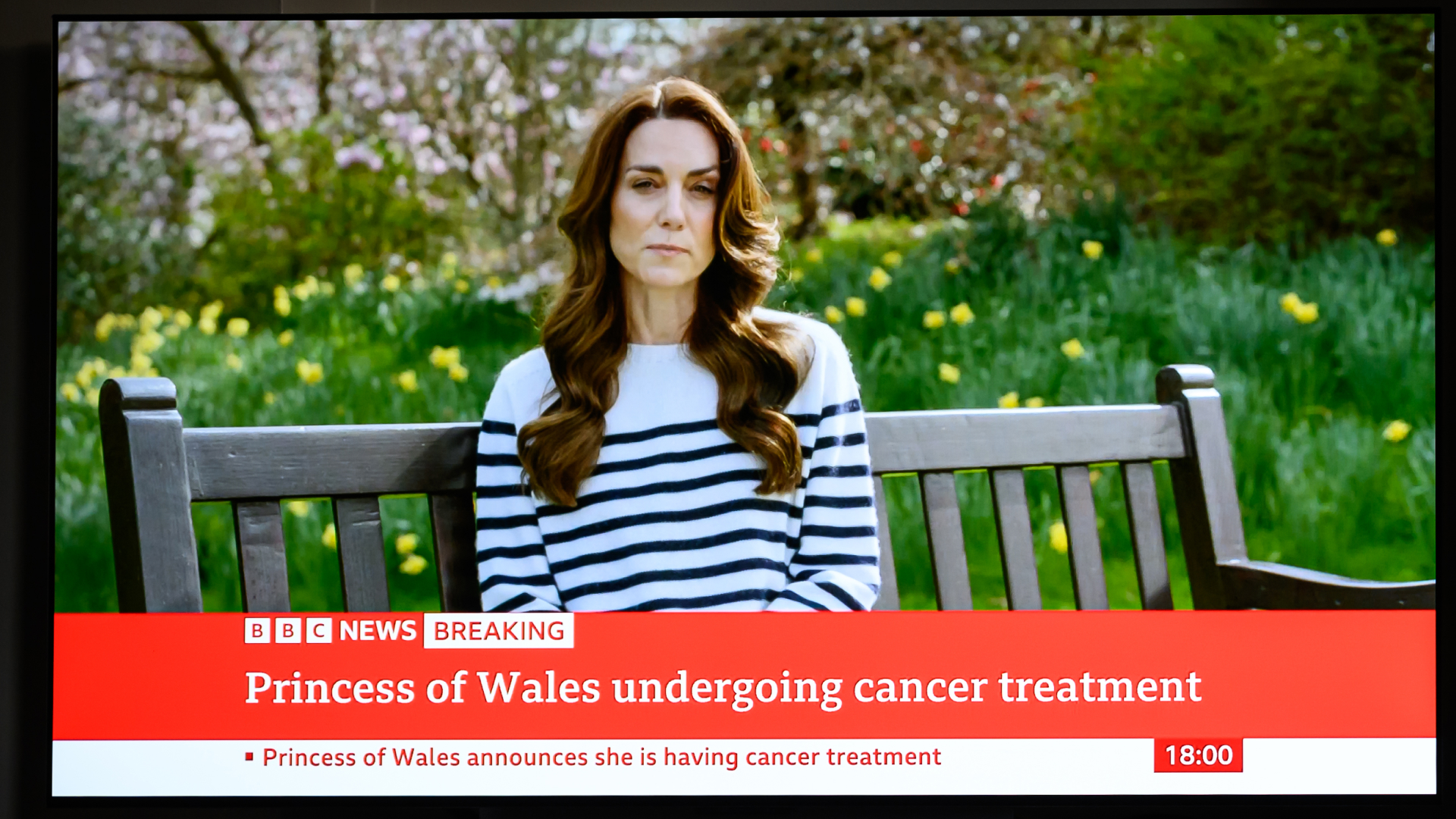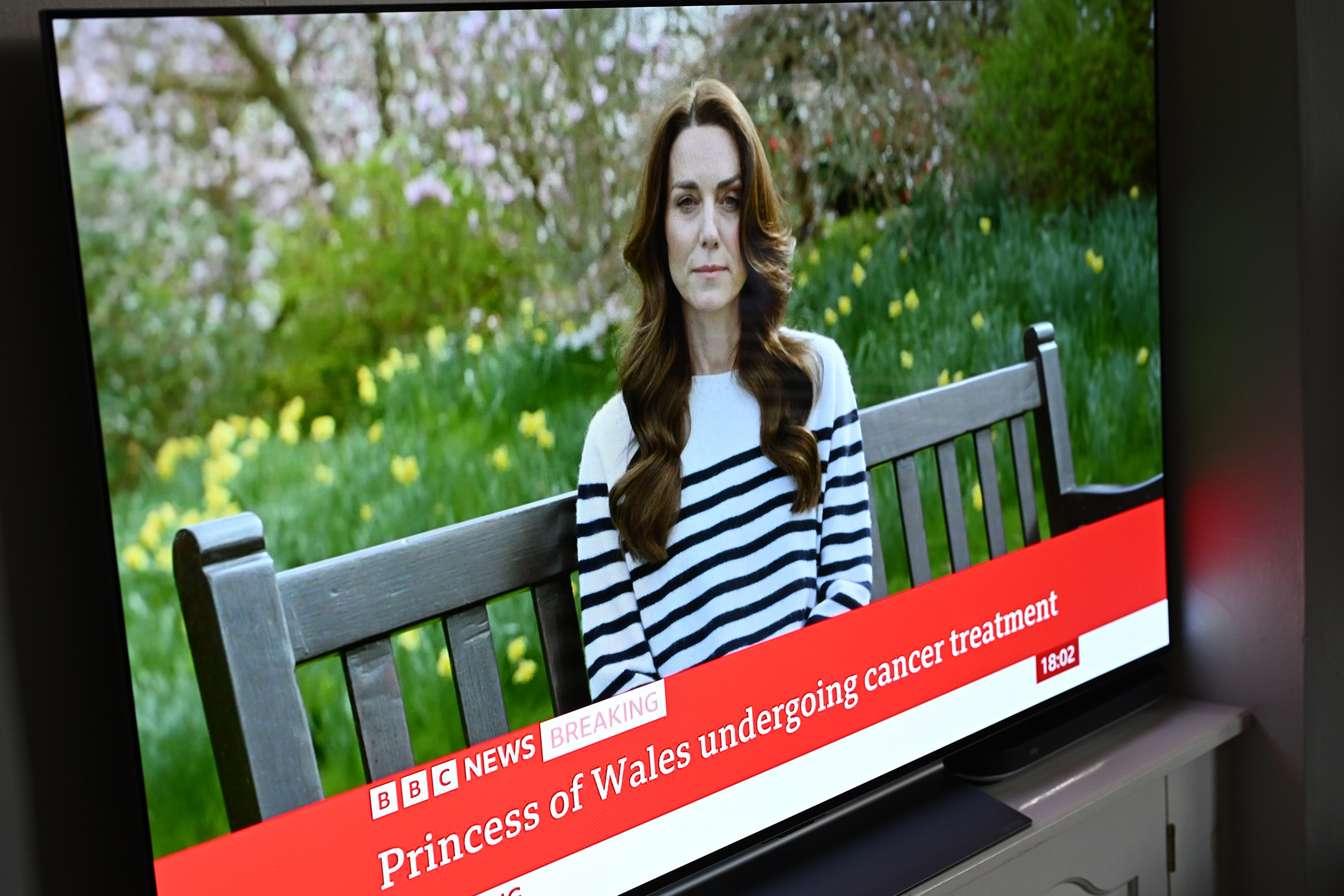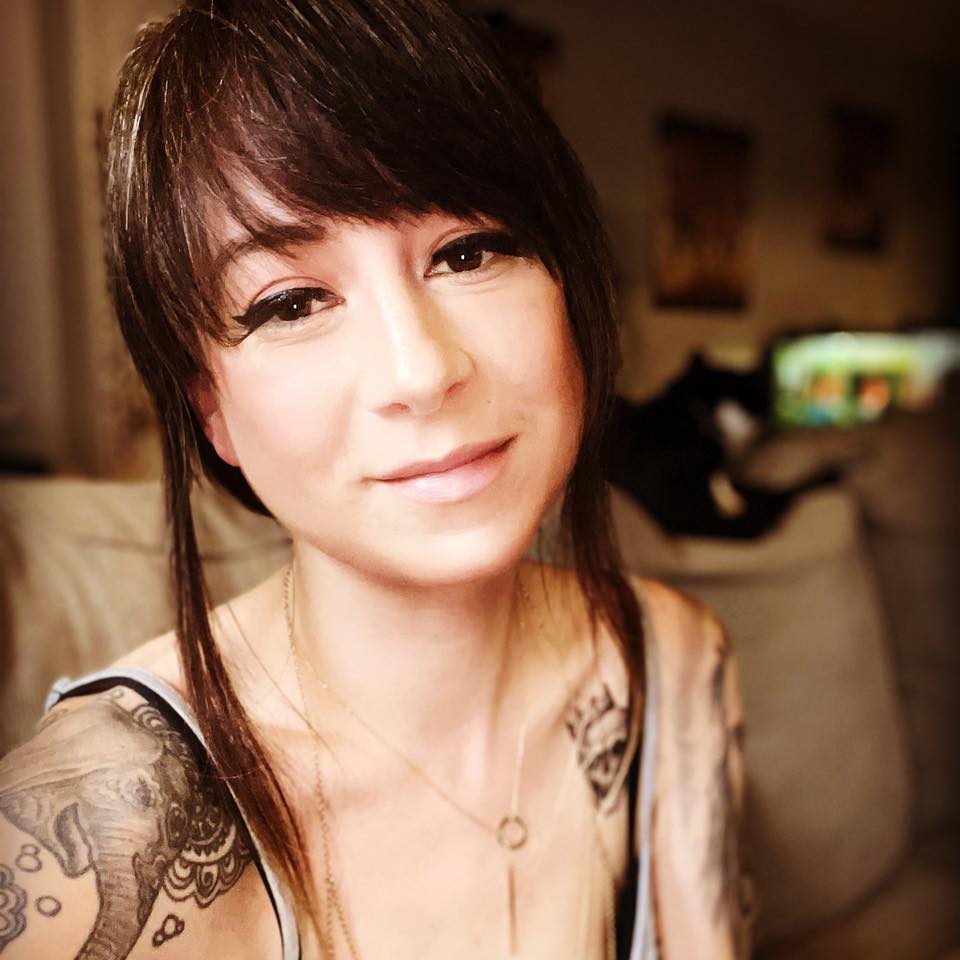Kate Middleton Online Conspiracy Theories Connected to Russian Disinformation Campaign
"It's not as though these Russia-linked accounts were driving the story; they were jumping on it."


New reports reveal that the online misinformation, scrutiny and conspiracy theories regarding Kate Middleton and her health hit a fever-pitch before the Princess of Wales revealed she has cancer and is undergoing treatment as a result, in part, of a Russian-based disinformation campaign.
Martin Innes, director of the Security, Crime and Intelligence Innovation Institute at Cardiff University in Wales, told both NBC News and The New York Times that his team uncovered at least 45 online accounts affiliated with Doppelgänger, a Russian disinformation operation, had posted conspiracy theories and calls for more transparency from Kensington Palace regarding Middleton, her health, and her whereabouts.
"It’s not as though these Russia-linked accounts were driving the story; they were jumping on it," Innes told NBC News. "It was already being framed in conspiracy terms, so foreign actors don’t need to set that frame—that’s already there to exploit."
An onslaught of conspiracy theories dominated the internet after Kensington Palace announced Middleton underwent a planned abdominal surgery and brief hospitalization. Absent from the public eye, theories about the princess became circulating the internet, including everything from the claim that the Princess of Wales was actually filming some reality TV, dating Pete Davidson, had "Freaky Friday-ed" with the King, and had been found in an internet-famous house.
A post shared by The Prince and Princess of Wales
A photo posted by princeandprincessofwales on
According to Innes, the Russian disinformation campaign was and is "about destabilization."
"It's about undermining trust in institutions: government, monarchy, media—everything," Innes told NBC in the same interview. "These kinds of stories are ideal vehicles by which they do that."
Innes and his team believe Doppelgänger was involved in posting and spreading Middleton conspiracy theories due to the accounts’ usernames, which all appeared to be created at the same time, in batches and were all using similar words or phrases. The Russian-linked accounts would also reply to existing posts about Princess Kate on X, formerly known as Twitter, with pro-Russia, anti-Ukraine content, he explained.
Online conspiracy theories intensified in March, after Kensington Palace released a photo of Middleton that was later found to be digitally altered. As a result, multiple mainstream news organizations pulled the image from circulation and issued a "kill notice," only fueling the online pandemonium.
"The situation is a perfect storm for conspiracy theories," Karen Douglas, a professor of social psychology at the University of Kent in the U.K., tells Marie Claire. "A famous person who seems to have gone missing creating uncertainty and the feeling that something terrible has happened...(People) clearly (thought) that something isn't right and the truth (was) being hidden from them."

Kate Middleton announces she has been diagnosed with cancer and is undergoing preventative chemotherapy treatments.
Studies suggest that men are more likely than women to believe in conspiracy theories, including one 2020 study that found men were more likely than women to endorse COVID-19 conspiracies.
That even the most outlandish Kate Middleton theories became more interesting than cringe-worthy, especially among an already susceptible population, is as Vox writer Aja Roman wrote in 2020, proof that while “there’s no hard evidence that conspiracy theories are circulating more widely today than ever before … it has certainly seemed like average Americans have bought into them more and more.”
Get exclusive access to fashion and beauty trends, hot-off-the-press celebrity news, and more.

Danielle Campoamor is Marie Claire's weekend editor covering all things news, celebrity, politics, culture, live events, and more. In addition, she is an award-winning freelance writer and former NBC journalist with over a decade of digital media experience covering mental health, reproductive justice, abortion access, maternal mortality, gun violence, climate change, politics, celebrity news, culture, online trends, wellness, gender-based violence and other feminist issues. You can find her work in The New York Times, Washington Post, TIME, New York Magazine, CNN, MSNBC, NBC, TODAY, Vogue, Vanity Fair, Harper's Bazaar, Marie Claire, InStyle, Playboy, Teen Vogue, Glamour, The Daily Beast, Mother Jones, Prism, Newsweek, Slate, HuffPost and more. She currently lives in Brooklyn, New York with her husband and their two feral sons. When she is not writing, editing or doom scrolling she enjoys reading, cooking, debating current events and politics, traveling to Seattle to see her dear friends and losing Pokémon battles against her ruthless offspring. You can find her on X, Instagram, Threads, Facebook and all the places.